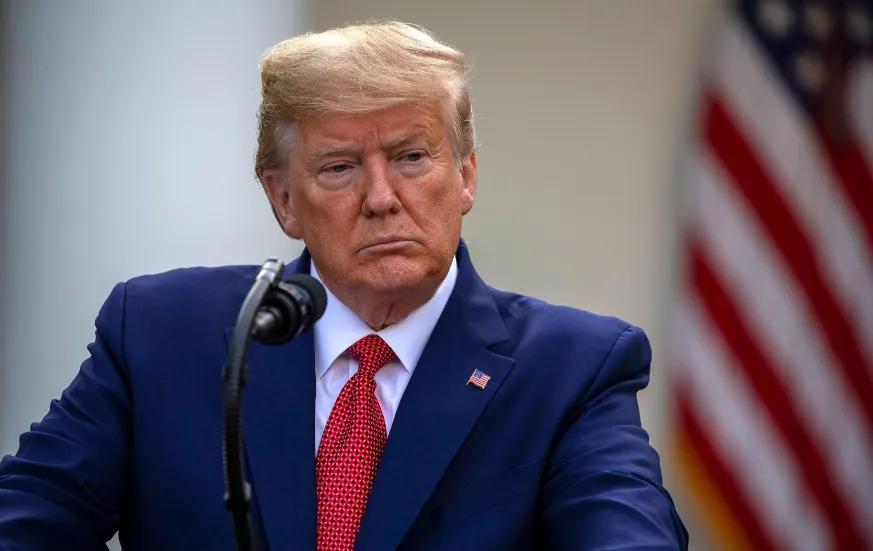On May 20, 2025, the U.S. Senate passed a procedural motion for the "Guiding and Establishing National Innovation for U.S. Stablecoins Act" (referred to as the "GENIUS Act") with a vote of 66 in favor and 32 against, clearing a key hurdle for the bill to ultimately become law. According to CoinDesk and Fox reporter Eleanor Terrett, this vote marks a significant advancement in U.S. stablecoin regulation, ending a legislative stalemate caused by bipartisan disagreements.
The Twisted Journey of the Bill
The GENIUS Act was introduced by Senator Bill Hagerty on February 4, 2025, with support from several senators, including Senate Banking Committee Chairman Tim Scott and Cynthia Lummis. The bill aims to establish a federal regulatory framework for U.S. dollar-pegged stablecoins, filling the current regulatory vacuum in the U.S. stablecoin market. The bill passed the Senate Banking Committee on March 13 with a vote of 18 to 6, gaining support from five Democratic members, demonstrating an initial bipartisan consensus.
However, the bill's progress was not smooth. On May 9, the Senate failed to pass the first procedural vote with a vote of 48 to 49, not reaching the 60-vote threshold. There was strong dissatisfaction among Democrats regarding the bill's anti-money laundering provisions, foreign issuer regulation, and national security clauses, leading nine Democratic senators to withdraw their support, causing the bill to nearly "fail." Senate Majority Leader Chuck Schumer and senior Democratic Senator Elizabeth Warren even privately urged Democrats to oppose it to force Republicans to make more compromises. Additionally, some Democrats were concerned that the Trump family might profit from stablecoin transactions, raising conflicts of interest and further complicating the bill's path.
After intensive bipartisan negotiations, the Democratic stance began to shift. According to crypto journalist Eleanor Terrett, in the May 20 vote, at least 15 Democratic members changed their positions to vote in favor, including Catherine Cortez Masto, Adam Schiff, and Mark Warner. This shift paved the way for the bill to enter formal consideration. Senator Cynthia Lummis stated after the vote, "Digital assets represent the future, and the U.S. is now one step closer to leading in this field."
Core Content of the Bill
The GENIUS Act aims to build a comprehensive framework for the issuance and regulation of stablecoins to promote innovation, protect consumers, maintain the security of the financial system, and solidify the global dominance of the U.S. dollar. Its core provisions include:
Clear Issuer Requirements: The bill stipulates that only deposit institutions or state-level issuers meeting specific regulatory standards can legally issue stablecoins, completely ending the current situation where "anyone can issue coins." Issuers must register with the Federal Reserve System and undergo federal regulatory scrutiny.
100% Reserve Requirement: Stablecoins must be fully backed 1:1 by U.S. dollars or highly liquid assets such as short-term U.S. Treasury securities, with monthly public disclosures of reserve composition. Issuers with a market capitalization exceeding $50 billion must undergo regular audits and are prohibited from falsely claiming government guarantees.
Strict Compliance Standards: Issuers must adhere to regulatory requirements similar to those for banks, including capital adequacy, liquidity, and risk management standards, while strictly enforcing anti-money laundering and anti-terrorism financing regulations such as the Bank Secrecy Act (BSA).
Consumer Protection: The bill establishes multiple consumer protection provisions, including clear redemption mechanisms and transparency requirements, ensuring user funds' safety and preventing fraud and systemic risks.
Cautious Approach to Algorithmic Stablecoins: For algorithmic stablecoins that rely solely on algorithms or digital assets to maintain value, the bill requires regulatory agencies to closely monitor them rather than outright banning them, leaving room for further research in the future.
Impact on Stablecoins and the Global Cryptocurrency Market
The passage of the GENIUS Act has profound implications for the U.S. and global cryptocurrency markets. The bill provides a clear legal framework for the stablecoin market, ending long-standing regulatory uncertainty. As a key infrastructure of the crypto economy, stablecoins are widely used for digital asset trading, cross-border payments, and instant settlements, with a market size exceeding $100 billion. The implementation of the bill is expected to attract more institutional investors and traditional financial institutions into the market, with major banks and Wall Street firms likely to accelerate their stablecoin business, bringing in billions or even trillions of dollars in capital.
Furthermore, the bill significantly enhances the compliance and transparency of the stablecoin market by strengthening anti-money laundering and consumer protection requirements. This will boost public trust in stablecoins, encouraging their broader application in payment scenarios beyond crypto trading, such as cross-border trade and everyday consumption. However, critics like Senator Warren worry that the bill may allow stablecoin issuers to operate outside some traditional financial consumer protection rules, increasing the risk of "privatization of the dollar" and potentially undermining the dollar's global reserve status by allowing investments in high-risk assets (such as money market funds).
On a global level, the GENIUS Act may further solidify the dollar's dominant position in the digital economy. Currently, dollar-pegged stablecoins like USDT and USDC account for about 90% of the global stablecoin market. The passage of the bill will provide legitimacy and regulatory backing for these stablecoins, helping the U.S. maintain its lead in the global digital asset competition and counter challenges from other countries (such as China or the EU) in the central bank digital currency (CBDC) space. However, the bill may also intensify discussions on "de-dollarization," as its lenient investment rules could raise concerns in the international community about the dollar's stability.
Future Outlook
Although the GENIUS Act has passed the procedural motion, it still requires final votes in both the Senate and the House of Representatives, as well as coordination of differences between the two versions before being sent to the President for signature into law. Currently, the House is reviewing a similar "STABLE Act," which has differences in regulatory pathways and details that may affect the final legislative process.
Overall, the advancement of the GENIUS Act marks a new phase in U.S. cryptocurrency regulation. Supporters believe it will bring compliance benefits to the industry, driving innovation and capital inflow; opponents warn of potential financial risks and political conflicts of interest. Regardless, the final implementation of the bill will profoundly reshape the global stablecoin market landscape, and its subsequent developments are worth close attention.
This article represents the author's personal views and does not reflect the position or views of this platform. This article is for informational sharing only and does not constitute any investment advice to anyone.
Join our community to discuss this event
Official Telegram community: t.me/aicoincn
Chat room: Wealth Group
免责声明:本文章仅代表作者个人观点,不代表本平台的立场和观点。本文章仅供信息分享,不构成对任何人的任何投资建议。用户与作者之间的任何争议,与本平台无关。如网页中刊载的文章或图片涉及侵权,请提供相关的权利证明和身份证明发送邮件到support@aicoin.com,本平台相关工作人员将会进行核查。




